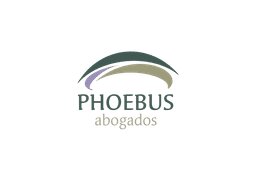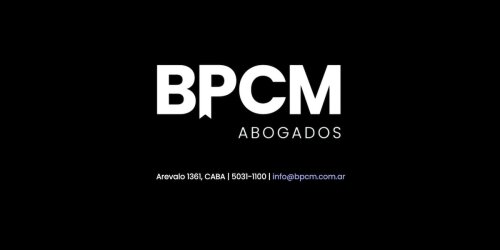Best Information Technology Lawyers in Argentina
Share your needs with us, get contacted by law firms.
Free. Takes 2 min.
Or refine your search by selecting a city:
List of the best lawyers in Argentina
About Information Technology Law in Argentina
Information Technology (IT) law in Argentina primarily deals with the legal issues related to the use of technology and digital information. Argentina is recognized as a regional leader in IT and has experienced significant growth in areas such as software development, data management, and digital services. The country has implemented various legal frameworks to regulate IT practices, ensuring the protection of intellectual property, data privacy, and consumer rights. These regulations are designed to support innovation while maintaining ethical practices in technology usage.
Why You May Need a Lawyer
Engaging a lawyer with expertise in IT law can be crucial in several circumstances. Such situations may include:
- Intellectual Property Disputes: When software, trademarks, or digital content is copied or used without permission.
- Data Privacy Concerns: Issues related to personal data breaches or compliance with data protection laws.
- Contract Negotiations: Drafting or reviewing service agreements, software licenses, or partnership contracts.
- E-commerce Transactions: Ensuring legal compliance in online transactions and regulations surrounding digital commerce.
- Cybersecurity Incidents: Handling cyber attacks, data theft, or hacking events affecting personal or company assets.
Local Laws Overview
In Argentina, several key legal frameworks govern IT activities:
- Data Protection Law: Argentina's Personal Data Protection Law (Law No. 25,326) regulates the processing of personal data and enforces privacy rights.
- Intellectual Property Law: Protects software, inventions, and proprietary digital content under its Intellectual Property Code.
- E-commerce Regulations: The Domestic Trade Secretariat sets rules for online sales, digital marketing, and consumer rights.
- Telecommunications Law: Oversees the operations of internet service providers and telecommunication networks.
- Cybersecurity Standards: Government initiatives establish guidelines to safeguard information systems and critical infrastructure.
Frequently Asked Questions
What are the legal requirements for protecting personal data in Argentina?
The Personal Data Protection Law requires consent from individuals to process their data, mandates secure data handling, and allows individuals to access and correct their data.
Do I need permission to use copyrighted digital content?
Yes, you need permission unless the usage qualifies as fair use. Argentine intellectual property law requires authorization for reproducing or distributing protected content.
What steps should I take if I suspect a data breach?
Immediately assess the breach's scope, notify affected parties, and report it to Argentina's Agency for Access to Public Information as required by law.
How can I ensure my e-commerce business complies with local laws?
Ensure transparency with customers by providing clear terms and conditions, proper invoicing, and compliance with consumer protection laws.
What constitutes a valid software license agreement?
A valid license clearly states the rights and obligations of both the licensor and licensee, including usage terms, restrictions, and liabilities.
Is online advertising regulated in Argentina?
Yes, online advertising must comply with general advertising laws to prevent misleading or false advertising and respect user privacy.
Who is responsible for cybersecurity in organizations?
Organizations must appoint a Data Protection Officer and implement appropriate security measures to protect against cyber threats.
How is digital signature legally recognized?
Digital signatures are legally valid and recognized in Argentina if they comply with the Digital Signature Law, ensuring authenticity and integrity.
What is the legal standpoint on open-source software?
Open-source software usage is legal but subject to licensing agreements, which must be respected to avoid infringement claims.
Can employees' internet usage be monitored legally?
Only with prior consent and if it serves legitimate business purposes, while ensuring respect for privacy and compliance with data protection laws.
Additional Resources
Here are some resources and organizations that can be helpful for someone seeking legal advice in the IT field in Argentina:
- Agency for Access to Public Information: Offers guidance on data protection and privacy rights.
- Argentine Chamber of Software and IT Services: Provides industry insights and legal updates.
- Ministry of Modernization: Publishes guidelines on technology use and digital transformation.
- INTA (National Institute of Industrial Property): Handles intellectual property registrations, including software patents.
Next Steps
If you need legal assistance in Information Technology, consider the following steps:
- Consult with a specialized IT law attorney to gain a detailed understanding of applicable laws and how they affect your situation.
- Gather all relevant documents related to your case, such as contracts, communications, and evidence of data breaches or IP infringements.
- Connect with local IT associations or government bodies for resources or referrals to qualified legal professionals.
- Ensure ongoing legal compliance by regularly reviewing and updating your business processes and policies in line with legal requirements.
Lawzana helps you find the best lawyers and law firms in Argentina through a curated and pre-screened list of qualified legal professionals. Our platform offers rankings and detailed profiles of attorneys and law firms, allowing you to compare based on practice areas, including Information Technology, experience, and client feedback.
Each profile includes a description of the firm's areas of practice, client reviews, team members and partners, year of establishment, spoken languages, office locations, contact information, social media presence, and any published articles or resources. Most firms on our platform speak English and are experienced in both local and international legal matters.
Get a quote from top-rated law firms in Argentina — quickly, securely, and without unnecessary hassle.
Disclaimer:
The information provided on this page is for general informational purposes only and does not constitute legal advice. While we strive to ensure the accuracy and relevance of the content, legal information may change over time, and interpretations of the law can vary. You should always consult with a qualified legal professional for advice specific to your situation.
We disclaim all liability for actions taken or not taken based on the content of this page. If you believe any information is incorrect or outdated, please contact us, and we will review and update it where appropriate.
Browse information technology law firms by city in Argentina
Refine your search by selecting a city.











